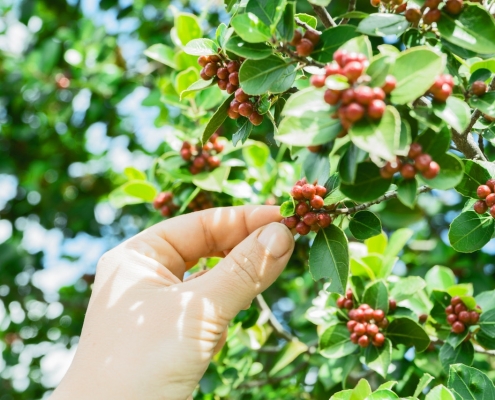New climate-resistant coffee bean discovery has ‘superior flavour’
Royal Botanic Gardens, Kew, the University of Greenwich and CIRAD
Coffea Stenophylla has not been seen in the wild since 1954 and had not been widely farmed in almost a century, however a team of intrepid researchers found a specimen in a forest in West Africa in 2018.
The research appears in a new paper published today by scientists from the Royal Botanic Gardens, Kew, the University of Greenwich, CIRAD (the French Agricultural Research Centre for International Development) and Sierra Leone.
Most of the world’s high-end coffee lovers enjoy drinking Arabica which is under threat from rising global temperatures, but Stenophylla can thrive in temperatures 6C above that of the beloved artisan bean.
FUTURE PROOFING COFFEE
Coffee farming is under threat as global temperatures rise and extreme weather events affect areas where it is grown. However, experts believe that the newly rediscovered Stenophylla could be a game changer in terms of breeding resilient crops and providing a “superior flavour”.
Stenophylla thrives in hot-tropical areas at only 400m above sea level and is native to Guinea, Sierra Leone and Ivory Coast. The hardy crop is thought to be drought-resistant.
“Future-proofing the coffee supply chain to deal with climate change is vital – coffee drives a multibillion dollar global industry, supports the economy of several tropical countries, and provides livelihoods for more than 100 million coffee farmers,” says Dr Aaron Davis, lead author of the report.
> Source: Euronews. Living



 Credit: Pexel/CC0 Public Domain
Credit: Pexel/CC0 Public Domain Credit: https://www.ecolife.zone/water-conservation/
Credit: https://www.ecolife.zone/water-conservation/